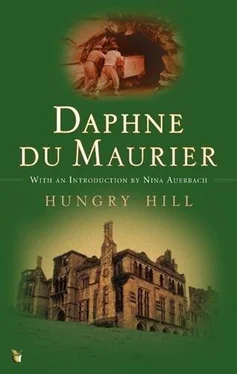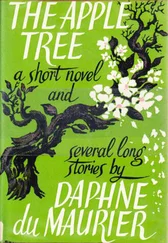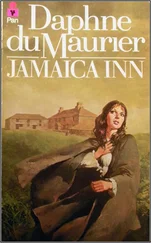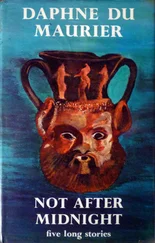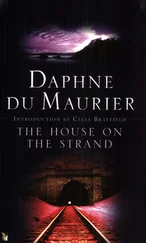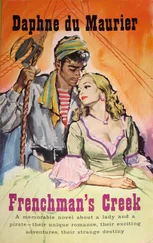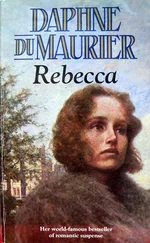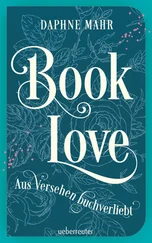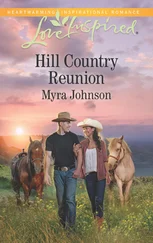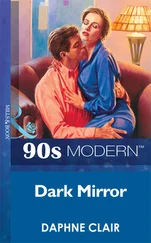Daphne du Maurier - Hungry Hill
Здесь есть возможность читать онлайн «Daphne du Maurier - Hungry Hill» весь текст электронной книги совершенно бесплатно (целиком полную версию без сокращений). В некоторых случаях можно слушать аудио, скачать через торрент в формате fb2 и присутствует краткое содержание. Жанр: Историческая проза, на английском языке. Описание произведения, (предисловие) а так же отзывы посетителей доступны на портале библиотеки ЛибКат.
- Название:Hungry Hill
- Автор:
- Жанр:
- Год:неизвестен
- ISBN:нет данных
- Рейтинг книги:3 / 5. Голосов: 1
-
Избранное:Добавить в избранное
- Отзывы:
-
Ваша оценка:
- 60
- 1
- 2
- 3
- 4
- 5
Hungry Hill: краткое содержание, описание и аннотация
Предлагаем к чтению аннотацию, описание, краткое содержание или предисловие (зависит от того, что написал сам автор книги «Hungry Hill»). Если вы не нашли необходимую информацию о книге — напишите в комментариях, мы постараемся отыскать её.
Hungry Hill — читать онлайн бесплатно полную книгу (весь текст) целиком
Ниже представлен текст книги, разбитый по страницам. Система сохранения места последней прочитанной страницы, позволяет с удобством читать онлайн бесплатно книгу «Hungry Hill», без необходимости каждый раз заново искать на чём Вы остановились. Поставьте закладку, и сможете в любой момент перейти на страницу, на которой закончили чтение.
Интервал:
Закладка:
"There is not the value in it that there used to be.
We're soon going to enter upon a new century too, and things are changing fast. This country may be slower to change than most, I don't know about that.
I've lived away too long either to know or to care."
He spoke without bitterness, but his voice was sad, as though, since he had looked upon his home, the past had risen up and closed upon him.
"Will you never come back to live here again?" said Jinny.
"No," he said, "no, that's all finished and done with."
He turned and faced her, his hands behind his back, his head a little on one side. That is how Hal used to stand, she thought. He had been part of him after all, a very great part, he had not belonged entirely to his mother.
"The mines are gone," he said; "they were the great link with this country. They brought good fortune to my family, but I doubt if they brought happiness. That is one of the reasons that I sold them, not to be quit of a bad debt, as most people believe. Now only the house remains, and if you and the boy want to live here, you are welcome to do so. There won't be any money for the upkeep though, not until I die. And I don't propose spending a penny on it in the meantime."
Jinny flushed. This was the Henry her father had warned her about. The business man, who sought first his own interests, or rather those of the wife at his back across the water, and was not likely to put his hand in his pocket for anyone else, not even his own grandson.
"It would be rather too big," said Jinny, "for me and John-Henry alone. Living close by, at the Rectory, we can come here often, and later on, when he is older, he will understand that one day it will belong to him."
It seemed to her that he looked upon her strangely, and with pity, and she held the boy's hand tightly, as though the firmness of his touch gave her strength and consolation.
"This is the third generation of my family," he said, "to be brought up by one parent only. You have lost Hal. I lost my Katherine. And my mother lost her John, when he was only a year or so older than your Hal. You will find it is not easy, for the one who is left…?
"No," said Jinny, "it will not be easy. But I love John-Henry, and I am not afraid."
He looked away from her, up at the portrait of Katherine on the wall. Then, very slowly, he put his hand inside his waistcoat pocket, and drew out a small round leather case. He held it a moment in his hands, and then snapped the clasp. He took from the case a replica of the portrait on the wall, in miniature. The likeness was well done, although the colouring was a little smudged in places, and the hair brighter than in reality.
"I have not shown this to anyone else," said Henry, "and I never shall. Hal did it for me, when he was a lad… He gave it me the night I brought Adeline back to London with me, and I rather think I never thanked him for it. You see, we were both a little shy of one another."
Jinny held the miniature, and then gave it back to Henry. He replaced it carefully in the leather case, and put it in his pocket.
"I've carried it now for twenty-one years," he said, "and Adeline has never discovered it."
A ghost of a smile appeared on his lips, and in a flash Jinny saw the gay, laughing Henry that once had been, the young man who stood beside her father in the university group.
"You won't give me away to anyone, will you?" he said.
Jinny shook her head.
He turned once more, and looked out of the window at the grass bank sloping to the creek. The sun shone upon a strip of carpet at his feet, and the myriad dust particles danced in a beam of light.
"You are fortunate in having Tom and Harriet for parents," said Henry. "They will take care of you and this boy, and you won't be alone. Hal's allowance will automatically come to you now, of course, you realise that. And when I die, as I told you before, the child has everything."
He glanced down dubiously at the small, solemn figure in the bottle-green velvet suit. "An empty house, and a load of doubts and dreams-not much of a legacy," he said.
John-Henry leant against his mother, and tugged at her hand, his signal that he wished to go. He did not care greatly for the strange man who looked down at him with pity, and he wanted to be back at the Rectory, with Granpie, amongst familiar things that he knew and understood.
"He's had enough of me," said Henry, with a smile.
"All right, young man, I won't keep you any longer. I am going too."
He walked with them to the hall. The luggage had been put in the carriage, the valet was standing in his hat and coat by the open door.
"It's a mistake," said Henry, "to walk back into the past. Look forward always, if you can."
He gazed up at the house, the barred windows of the new wing, the iron balcony above the door. Then he shook hands with Jinny, and touched the boy lightly on the head. He climbed into the carriage, and the servant slammed the door, taking his seat on the box beside the driver.
"I want you to say goodbye to Tom and your mother for me," said Henry. "I won't see them again. Ask Tom whether he remembers saying to me over thirty years ago, "I would rather be good like the Eyres than clever like you Brodricks'? The trouble is that goodness dies, and lies buried in the earth. Cleverness passes on and becomes degenerate."
He looked for the last time at the stone walls of the castle, and down across the sloping grass to the creek, and Doon Island, and the grey mass of Hungry Hill. Then he smiled once more at Jinny.
"You never knew my mother, did you?" he said.
"She died many years ago in Nice. The last words she ever said to me were, "Don't look serious, Henry boy. Thinking never did anybody any good." I don't know if she was right or wrong, but thinking always brought me pain. You can tell that story to your son, when he comes into his legacy."
He gave an order to the driver, and lifted his hat, and the carriage bowled away down the drive, and disappeared amongst the belt of trees. As it passed into the woods the herons rose from their nests in the tall branches, and went crying down the creek towards Doon Island.
EPILOGUE
The Inheritance, 1920
AS JOHN-HENRY turned into Queen Street a sentry came out of the doorway of a house.
"I wouldn't go any further," he said. "They're shooting down the other end and you might get a bullet in your back from one of our fellows."
As he spoke they heard the rattle of a machine-gun and the squealing brakes of a car. The sentry grinned.
"Trouble for someone," he said.
At the far end of the street a car skidded into the pavement, and from the lowered window they could see the nose of the gun pointing across the square. Three men on the pavement flung themselves on their faces. Someone ran from one of the houses to the car and jumped on the running-board. He had a rifle in his hand. A small party of soldiers appeared at the end of the street by the square, and the car gathered speed and turned sideways, up a back street by the farthest house.
The soldiers fired at the retreating car, and then they began to run across the square towards the big post office at the corner. The men who had flung themselves down on the pavement picked themselves up again, and dusted their clothes, as though nothing had happened. A woman called shrilly from one of the upper windows of a house. The church clock struck five o'clock. John-Henry lit a cigarette and smiled at the soldier.
"You'd think," he said, "that after four-and-a-half years of war men would be sick of shooting one another."
The soldier took a fag from behind his ear, and borrowed a match.
"Not in this country," he said; "there's not a man amongst 'em who wouldn't knife his best friend if he had the mind, and then take flowers to his funeral."
Читать дальшеИнтервал:
Закладка:
Похожие книги на «Hungry Hill»
Представляем Вашему вниманию похожие книги на «Hungry Hill» списком для выбора. Мы отобрали схожую по названию и смыслу литературу в надежде предоставить читателям больше вариантов отыскать новые, интересные, ещё непрочитанные произведения.
Обсуждение, отзывы о книге «Hungry Hill» и просто собственные мнения читателей. Оставьте ваши комментарии, напишите, что Вы думаете о произведении, его смысле или главных героях. Укажите что конкретно понравилось, а что нет, и почему Вы так считаете.
